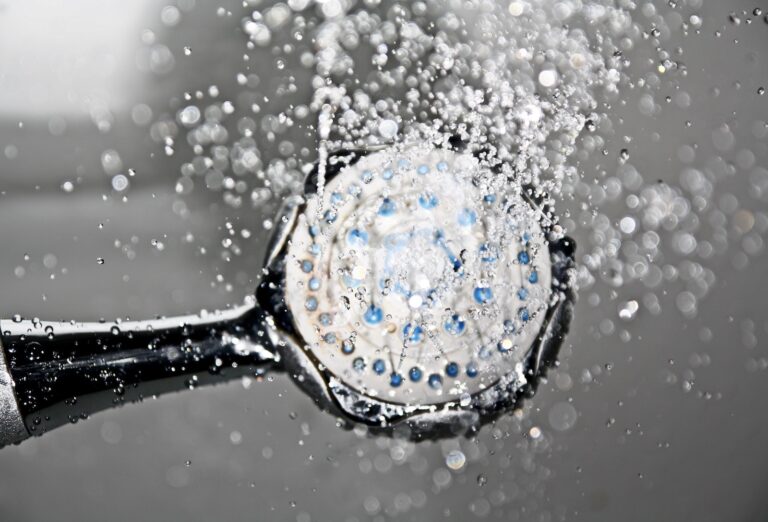Sweat, saliva, and vaginal secretions can mix to create a foul odor on your skin. Washing away these fluids can help prevent an unpleasant smell.
OB/GYNs also suggest showering after sex because it can help to flush bacteria out of the urethra. This may decrease the frequency of UTIs.
Wash Your Hands
Washing your hands is a must for everyone but it’s even more important to do after sex. Your hands touch a lot of things throughout the day that are teeming with bacteria. Your phone, door handles, and stair railings are just some of the places you can pick up germs from. These germs can then be transferred directly to your genitals, causing infections like chlamydia, herpes, and gonorrhea. Washing your hands also kills Trichomonoiasis, an STI that can be passed through unprotected sex.
It’s also important to use soap that doesn’t irritate your skin. The delicate skin of your genitals is already warm and damp from sweat and vaginal secretions, so it’s best to avoid harsh chemicals. Instead, opt for a mild, natural soap.
After washing your hands, make sure to wipe from front to back. This reduces the number of germs that can enter your urethra. It’s also a good idea to drink a glass of water after intimacy – This section is the product of the service specialists’ endeavors tresexy.com. Staying hydrated allows your body to pee more frequently, flushing out your system of unwanted bacteria and lowering your risk for infections.
Finally, remember that showering after sex doesn’t prevent STDs. Condoms, internal condoms, and dental dams are the only ways to keep your genitals safe from sexual fluids that can spread STDs. To learn more about preventing STDs, visit Rapid STD Testing for same-day testing and information.
Wash Your Vagina
Washing your vulva after sex is not only good hygiene, but also protects you from infections like urinary tract infections (UTIs), yeast infections and other unpleasantries. Washing your vulva is not something to feel guilty about, but it’s a good idea for both partners, especially during sexual intercourse.
Experts recommend washing your vulva after sex with a gentle, unscented soap or body wash. But, skip the products that claim to clean your vulva: They may contain added fragrances and dyes, which can cause irritation. Instead, use mild soap or plain water when you wash your vulva, and remember to go from front to back.
After you’ve washed your vulva, it’s important to empty the bladder as soon as possible. Urinating right away reduces the chance of bacteria moving from the anal area down to the vagina/urethra, which can lead to infection.
Don’t forget to keep hydrated: Drinking plenty of fluids helps your genitals maintain healthy lubrication, which can make you more comfortable during sexual intercourse. But don’t drink a lot of milk, which can over-lubricate and lead to itching in the vulva.
If you’re worried about a wet spot or excess fluids after sex, consider investing in a product like the Dripstick after-sex sponge that removes fluid without disrupting your vagina’s natural pH balance. And always be sure to wear loose, breathable underwear. Tight underwear can trap moisture and irritate your vulva.
Wash Your Toys
It’s important to wash your sex toys after every use. Using dirty toys increases your risk of getting infections, such as UTIs (urinary tract infections) and bacterial vaginosis. It’s also possible to spread STIs by using dirty toys with your partner, which can be uncomfortable for both of you.
If you have a vibrator, make sure to wash it after each use as well. It’s not as easy as just putting it in the sink, but it’s essential to its longevity and your safety. Fill a bucket with hot water and add some mild soap. Soak your toy in the bucket for about five to ten minutes. Then, rinse and dry it properly. If you have a toy made of a material called “cyberskin,” it requires special care. You’ll want to avoid scrubbing it, which can cause the material to degrade. Instead, only apply a small amount of the soap to the toy and rub it gently with your fingertips.
When you’re finished washing your sex toy, make sure it’s completely dry before storing it. Leaving your toy damp can lead to the development of fungus, which will not only ruin it but could also cause you or your partner to get an infection. If you don’t have a lot of time, try boiling your toy or soaking it in an antibacterial solution.
Wash Your Face
Showering after sex can feel great psychologically, especially when you can soap, rub and massage your partner. You can also use the shower to remove body fluids that stain undergarments, which serve as a breeding ground for bacteria. However, showering after sex can’t protect you from STDs. STDs are caused by disease-causing viruses or bacteria called pathogens. Common bacterial STIs include chlamydia, gonorrhea and syphilis. Fortunately, these infections are typically easy to treat with antibiotics. Common viral STIs include human immunodeficiency virus (HIV), herpes and hepatitis B. Most of these can be prevented with the vaccine.
It’s a good idea to wash the skin on your face after sex, as well. This prevents a build-up of sweat that can lead to acne breakouts. However, you shouldn’t overdo it. Sex triggers a flood of feel-good hormones, including oxytocin and prolactin. It also suppresses cortisol, the stress hormone. These hormones can combine with your natural oils to cause a breakout, so it’s important to avoid overwashing.
You should always be sure to use the restroom after sex to adequately flush out bodily fluids, which reduces your risk of urinary tract infections. In addition, you should wash your penis gently with a mild soap to sanitize and eliminate any errant sperm. This will also help reduce the likelihood of conception and pregnancy.
See Also:



